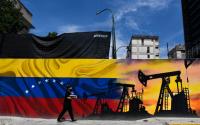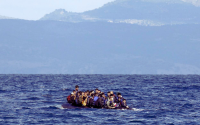15 September 2006Philip Thornton, Economics Correspondent
Why is this matter being raised?
The British Government has threatened to withhold £50m of aid destined for the International Development Association, an arm of the World Bank, in protest at the Washington-based institution's failure to end the practice of attaching tough conditions to poor countries that receive aid money. Hilary Benn, the Secretary of State for International Development, flies into Singapore for what could become a heated meeting with Bank officials for their annual meetings on Sunday.
Has this row come out of the blue?
One of the key organisations involved in deciding how the aid that rich countries pay to alleviate poverty and disease gets to the recipients is the World Bank, the institution set up out of the ashes of the Second World War with a mission to end poverty.
IDA is the concessionary lending arm of the Bank, which gives interest-free loans and grants to the world's poorest countries. Donor countries meet every three years to fill up IDA's funds. Last year, the UK jacked up its share by 59 per cent to £1.3bn, but also injected £50m, linked to the World Bank reforming the way it attaches conditions to its aid. The reason Mr Benn has raised this now, DfID says, is to give a high profile before his meeting with the World Bank president Paul Wolfowitz on Sunday.
Why is the UK so exercised by this?
Last year, the Department for International Development, Mr Benn's Cabinet responsibility, took a tough stance on the issue in a White Paper. It opposed World Bank efforts to impose policies that force poorer countries to liberalise their markets by, for instance, privatising essential services.
However, campaign groups have recently started to highlight an inconsistency between that stance and the fact that the UK gives so much money to an organisation that still practises what is known as "conditionality". Last week, War on Want claimed that Globeleq, an arm's-length subsidiary of DfID, in effect supports privatisation by stepping in when private sector companies want to jump ship.
The World Bank, however, is engaged in a fight against corruption and is determined that it will not make loans or grants if there is a risk it will go into someone's back pocket or Swiss bank account. However, Mr Benn is concerned this is going too far for an organisation whose job is to help eliminate poverty. As Mr Benn pointed out last night: "The World Bank should not walk away from our responsibilities to poor people, whatever the behaviour of public officials and politicians in countries where they live."
The imbalance of power within the World Bank is also a cause of grievance because votes are weighted in line with financial contributions. Recipient countries such as India complain they have little influence over decisions, while small rich nations such as Belgium have a disproportionate say. The US is the Bank's biggest shareholder and can block any decision. Japan, Germany, the Uk and France are the other big players.
Surely governments must attach some conditions to aid?
The issue of "conditionality" has always been a thorny one. Governments used to impose conditions on bilateral aid to secure markets for their own contractors and businesses, although this practice has been officially abandoned by most donor nations. Many poverty groups say that rich countries simply do not give enough money for aid and should hit their own targets (0.7 per cent of national income in official aid) before they start setting any conditions.
Critics of the aid "industry" say handing over cash without any terms and conditions - for example, anti-bribery or anti-corruption measures - gives no incentive for officials in the recipient country to spend wisely. In 2000, the International Monetary Fund, the Bank's sister body, blocked a debt-relief deal with Uganda after it emerged President Yoweri Museveni has spent US$35m on a private jet.
But using aid to force poor nations to adopt harsh austerity measures or to privatise public services is what is at issue in the latest dispute. Britain says that while tackling corruption is laudable, imposing economic conditions on how to spend the money is not.
How will this go down on the high street?
Campaign groups gave a warm but cautious welcome to the move. Christian Aid hailed it as a victory as it came after months of pressure by the charity. But Charles Abugre, Christian Aid's head of policy, said yesterday: "We now urge Britain to go the extra mile and withhold all its monies. Until these organisations fundamentally reform and allow poor countries space to develop, they will remain a busted flush which we must not underwrite."
War on Want was not optimistic the move would make any difference, pointing out it was a tiny fraction of the UK's £1.3bn IDA budget. "The threat therefore lacks the necessary bite," John Hilary its campaigns director said.
War on Want is running a joint campaign with the public sector trade unions PCS and Unison, calling on the Government to withhold all funding to the World Bank and IMF unless they abandon conditions such as privatisation and trade liberalisation.
What does the World Bank say?
The organisation saysit imposes conditions on the money lent "to try to ensure that it's well spent". However, it seemed the Bank was wrong-footed by Mr Benn's comments as Danny Leipziger, its vice president for poverty reduction and economic management, said it was the first he had heard of Britain's protest.
"If he'd said that 10 years ago, I think it would have been a strong debating point," he said, arguing that the Bank had reformed over the past decade.
Its September 2005 review of the issue said its conditions had been "transparently disclosed and clearly defined".
The UK threat has raised the stakes - what now?
Hilary Benn says he wants to see evidence the World Bank is making progress towards eliminating onerous economic conditions. This could give him a let-out if he can say that, yes, thanks, he has now seen the evidence and he is happy.
It seems unlikely that he would want a long-running battle with the Bank over a token amount of money, especially if there were any hint the poor people waiting for money were losing out. Next month, however, negotiations start for the new World Bank funding round. This will be seen as the key test of the UK government's resolve to end harmful conditions in Bank programmes.
Should rich nations tell poor countries how to spend aid?
Yes...
* The World Bank is trying to stamp out corruption, which is rampant in some of the world's poorest nations
* Conditions on aid can be an effective way of encouraging undemocratic regimes to uphold human rights
* It would be reckless for governments to sign a blank aid cheque on behalf of their taxpayers
No...
* The World Bank is using aid to force governments to adopt harsh and risky economic reforms such as privatisation of key services
* Economic conditions are an abuse of power and perpetuate an unhealthy relationship between rich and poor worlds
* Conditions can thwart efforts to direct aid to the poorest people
http://news.independent.co.uk/world/politics/article1603633.ece






